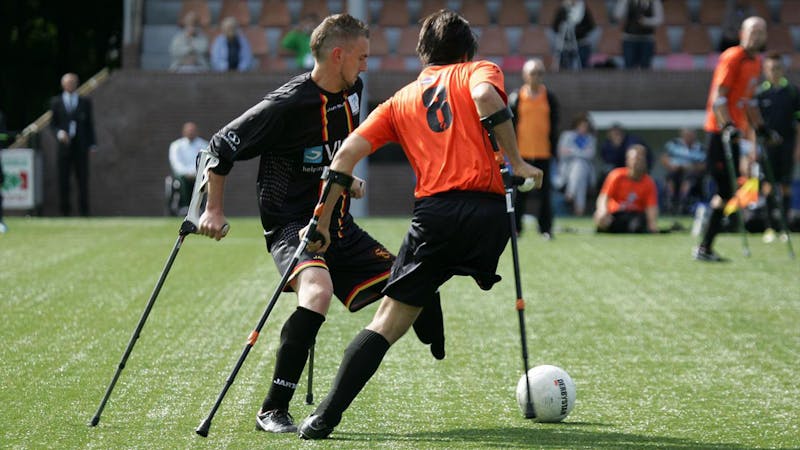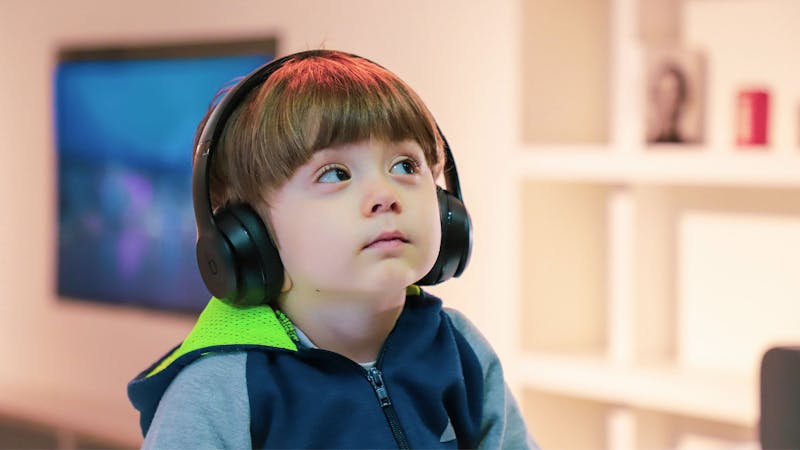Inclusive Language For Disability: How & Why?

In a constantly changing world with exterior forces that seem to pull us apart, the concepts of inclusivity and offense are being brought more into the light. It's more important than ever to be kind, show respect, and treat people how we want to be treated, particularly in the world of differently-abled people. 'Offense' is a word that seems to be on the tip of everyone's tongue these days. What can I say, what can't I say? In this article, we will talk about the various ways you can change your speech, adapt your views, and sympathize more with those with disabilities. Whether the information we share changes your views or not, we hope you learn something about inclusive language.
People First
The first step towards inclusivity when talking about those with disabilities is treating human beings like human beings. This may seem logical or obvious, but a lot of the speech we use excludes or wrongly highlights differently-abled people. The 'people-first' approach to inclusivity is what the UN puts first on its definitive guideline list. Examples of this are:
- 'Students with dyslexia,' rather than 'Dyslexic students'
- 'Children with albinism,' rather than 'Albino children'
- 'People with intellectual disabilities,' rather than 'Intellectually disabled people’
As these examples show, it's important to put the person, the human being, first instead of the disabilities, conditions, or illnesses they have. The UN also makes a great suggestion in their listing; 'If in doubt, you should ask the person or group how they choose to identify. Indeed, persons with disabilities are not a homogeneous group, and they may self-identify in various ways.' This should be the golden rule when talking about differently-abled people; if in doubt, ask the group or person you are talking to.
Stereotypes & Labeling
The next step to inclusive language is not to single out those who have disabilities. Just like the 'people first' approach, stereotypical language and labeling are ways of separating differently-abled people from everyone else. The use of stereotypes is something we all are familiar with, whether we have been judged ourselves based on race, color, ethnicity, or ability, or when we might have judged someone else. Some examples are:
- Describing someone with disabilities as 'courageous,' 'brave,' 'special,' or 'superhuman' can be seen as offensive, condescending, or embarrassing.
- Using phrases such as 'a survivor,' 'having overcome something,' or 'how unfortunate' are not always appropriate. Being aware of a person's situation and feelings always brings more context to how you should speak.
Labeling is also a very common thing for people to do, and even if no malice is intended, it can lead to misinformation and offense. Labeling everyone with a disability as disabled is usually inaccurate. Often disability prevents people from doing certain tasks, but it's not always the case. Disability can be hidden, not obvious to outside perception; thus, our language should be respectful and fair.
Insults
Everyone knows that throwing insults around is never a good idea. However, as language evolves over time, some people may use insulting vocabulary without even realizing it. Terms that once were seen as socially acceptable can now cause much offense and harm. Older generations used and saw words like ‘retarded’, ‘moron’, and even ‘looney’ as 'normal,' but nowadays, they are unacceptable. Of the many things to consider when thinking about inclusive disability language, the adaptation and removal of certain words are often the first things people address when trying to educate themselves.
Many people become anxious when trying to find the correct term to use. When struggling, a good idea is to try and remain factual, descriptive, and not condescending or sentimental. Terms such as "differently-abled," physically or mentally "challenged," and "exceptional" may be well-intended, but some may find them patronizing. When unsure, the best option is to use whatever the individual disabled person prefers. To take the time to earn their terminology. Disability language, like any language, differs between people, groups, and generations and is ever-evolving. With a bit of thought, you can avoid embarrassment and insult.
Assumption
We've all had moments in our life when our assumptions came back to bite us in our behinds. Assumption is, after all, essentially bias when based on a person's membership to a certain group, conscious or otherwise. Our views of the world around us are shaped during our formative years, and sometimes we'll hold beliefs or opinions that we aren't even aware of or ever challenge. As with many things in life, if we just take a moment to think about what we're saying, we might be surprised about what we learn about ourselves.
When we make an assumption regarding disabilities, we're often promoting harmful stereotypes without realizing it. You may be belittling someone's personal experience or even misunderstanding their situation. More than one billion people worldwide, around 15% of the population, have some form of disability, so it's important that we start to acknowledge that it's not something 'rare' or to 'be fixed' but should be accepted as just part of everyday life. Most people don't set out to make harmful assumptions, but if we discover we are, it's an easy thing to change with a little education, listening, and compassion.
Unlearning Ableism
As mentioned above, unlearning certain ableist language is simply a matter of education and compassion. We're sure there are some terms you've already changed or stopped using in your lifetime. These could have been based around race, sexuality, or even things like scientific terms and workplace language. Firstly, if someone mentions that they find the language you are using offensive, don't argue why. It's not up to them to validate how they are feeling. It's enough to know that you're causing them distress. Another good tip is to check your slang. This is easily where the most ableist language will occur, often without the user thinking about its proper context or harmful connotations. Declaring that you're feeling 'manic' or that you're 'OCD' and 'schizo' when you simply mean you're stressed belittles people who live with mental health conditions.
Nowadays, some people feel they're being criticized or penalized for old beliefs and the language they use, but changing doesn't need to be a punishment. Another great tip is to make an effort to consume literature, art, podcasts, and even games made by disabled creators. This is often an educational and often fun way to learn more about the world and change your perspective for the better.
Conclusion
If there is one main takeaway from this article, it's ensuring that the language we use regarding disability removes a sense of the 'other.' For too long, the terms and attitudes we used treated people with disabilities as 'lesser.' By ensuring we treat everyone with the same level of respect and thought, any ableist language can be easily changed.
Resources
- United Nations - People First
https://www.ungeneva.org/sites/default/files/2021-01/Disability-Inclusive-Language-Guidelines.pdf - Special Olympics - Inclusive Language
https://www.specialolympics.org/about/intellectual-disabilities/inclusive-language-for-talking-about-people-with-intellectual-disabilities - Forbes - The Dos and Don’ts Of Disability
https://www.forbes.com/sites/andrewpulrang/2020/09/30/here-are-some-dos-and-donts-of-disability-language/?sh=1a2b433ed170 - HBR - Stop Assuming
https://hbr.org/2020/12/why-you-need-to-stop-using-these-words-and-phrases - BBC - Aleistic Language
https://www.bbc.com/worklife/article/20210330-the-harmful-ableist-language-you-unknowingly-use
Language Education Resources:
- 75+ Examples of Idioms for Kids
- Figurative Language
- Metaphor Examples
- Allusion
- A Guide to Personification
- Personification for Kids
- Alliteration
- Simile
- Assonance
- Onomatopoeia
- Hyperbole
- Consonance
- Nouns: A Complete Guide With Examples
- All You Need To Know About Verbs - With Examples
- Parts Of Speech
- Punctuation Inside or Outside Quotation Marks

About the author
Casey Wise
Casey Wise is a British journalist, creative copywriter, and music creator with a deep passion for language, travel, and technology. Based in Barcelona, his work extends from local start-ups and newspapers to university radio and the British NHS.

